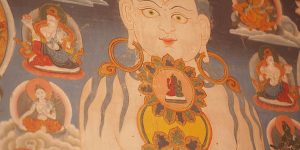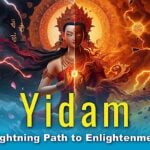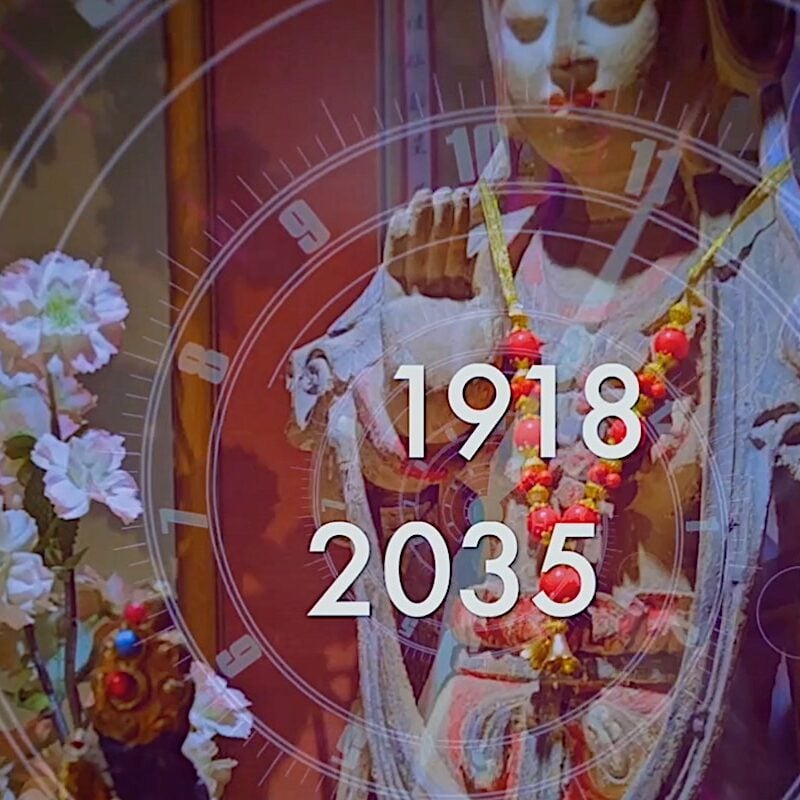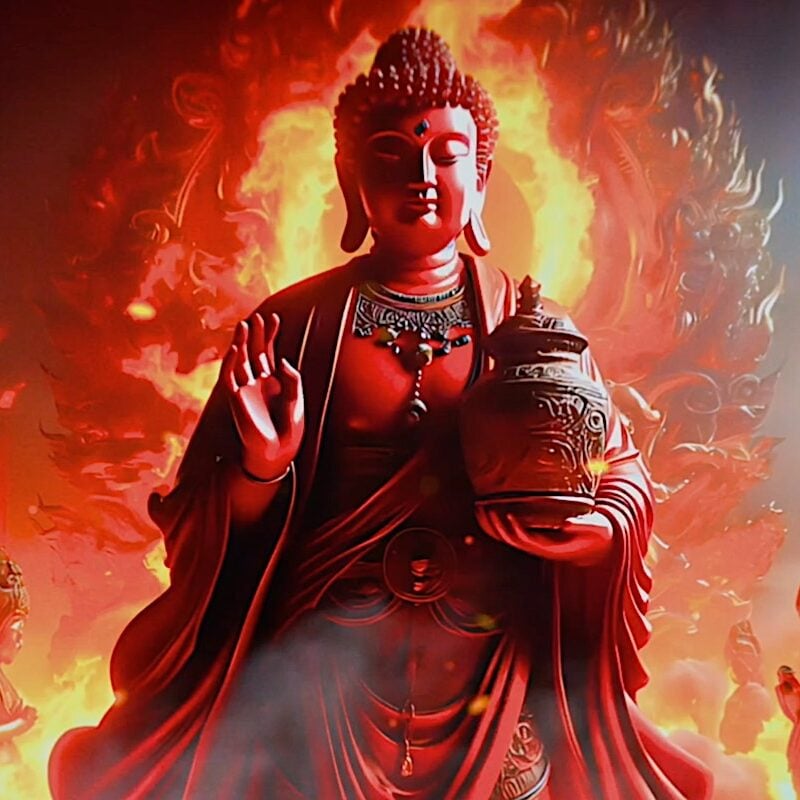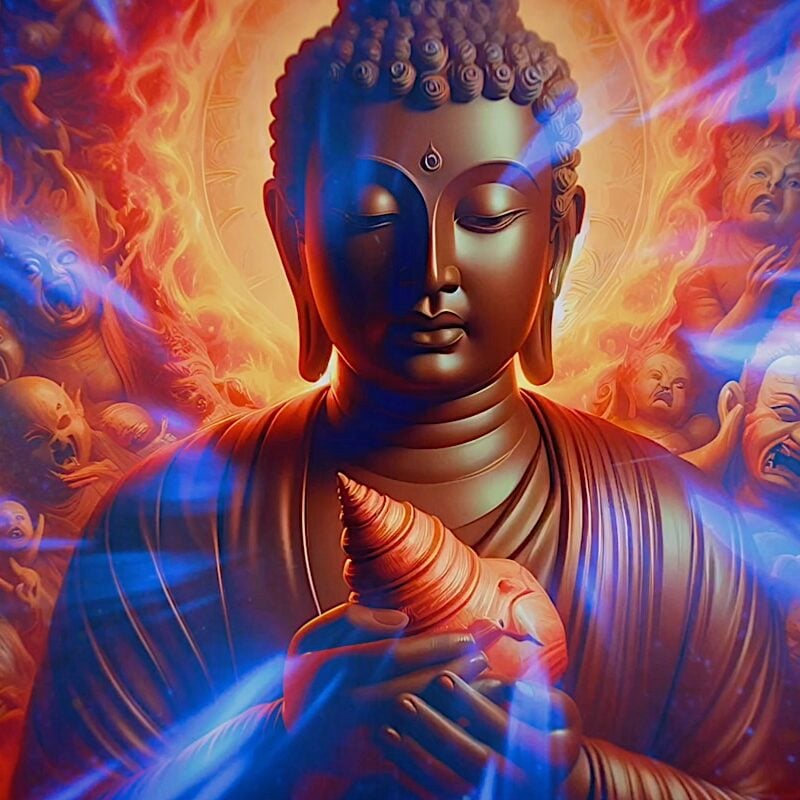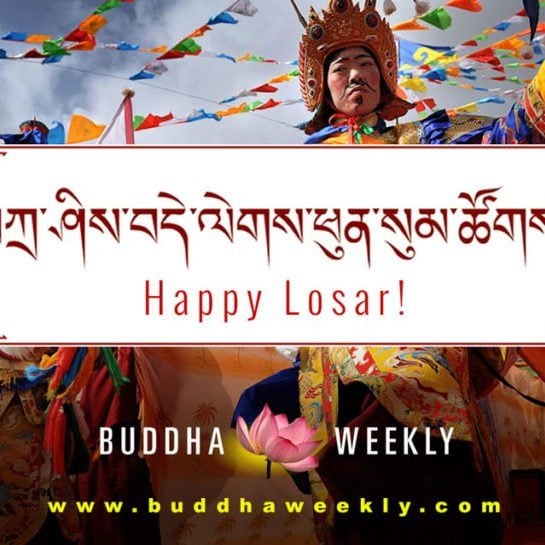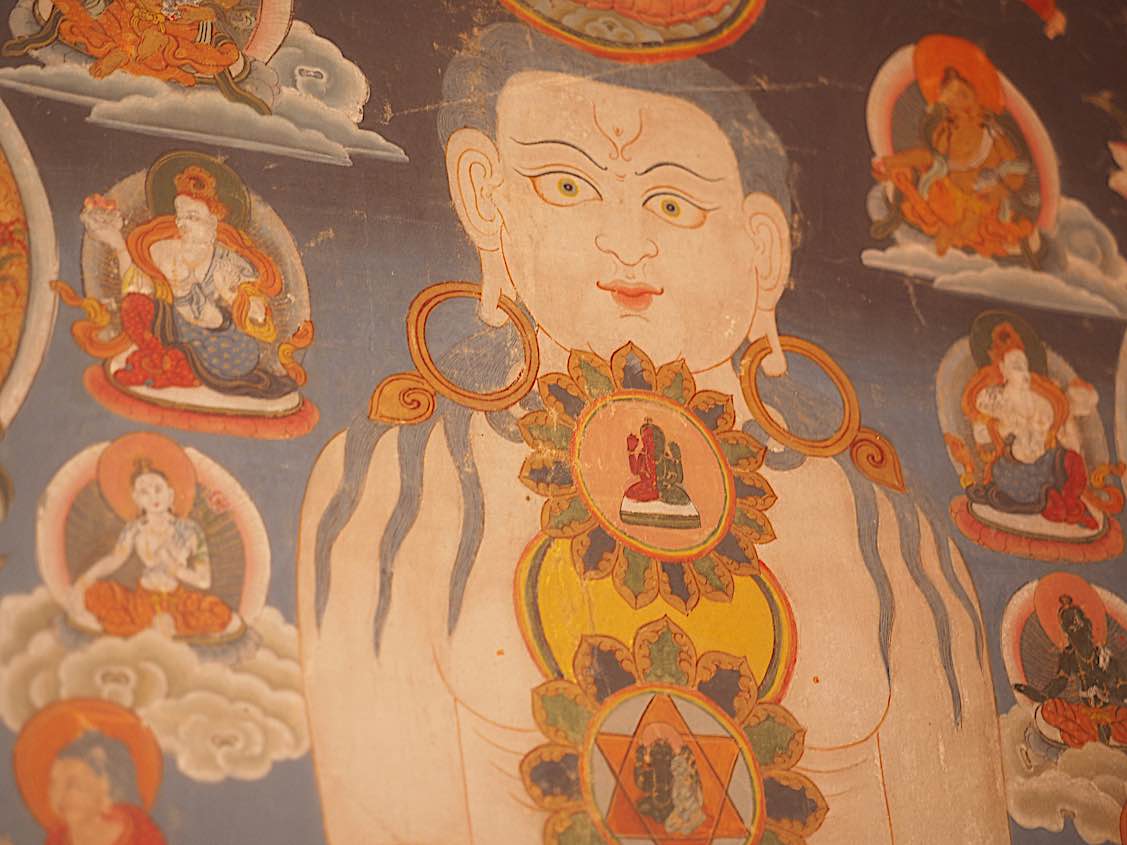Doctor Strange Movie Cast Coached by Gelong Thubten, a Tibetan Monk Known for Extensive Years-Long Retreat
Doctor Strange, for those strange few who don’t know, is a new movie release from Marvel, featuring a “mystical” and magical super hero. On set, the cast and crew were coached during the filming by Gelong Thubten, a Tibetan Buddhist monk and teacher.
According to The Express Tribune, Benedict Cumberbatch, who plays Doctor Strange, was full of praise for the training: “That’s a great practice to have in your life — full stop,” referring to Gelong Thubten’s training. [1]
Trailer for Doctor Strange movie:
In the movie, Gelong Thubten’s on screen alter ego would be the Ancient One, played by Tilda Swinton, who becomes the teacher of Doctor Strange, helping him master the mystical arts. It was Swinton who introduced Gelong Thubten to the crew: “I introduced him to the project and he’s been hanging out with us and teaching everybody, if they don’t know, about mindfulness and about how to still the mind.” Interestingly, in the original comic book, the Ancient One was a sorcerer rather than a Buddhist-inspired sage.
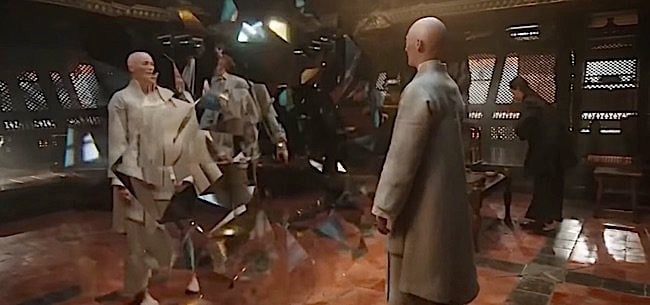
Gelong Thubten is himself famous for an extensive four year retreat in 2005. According to the Buddhist Channel: “In June 2005 Gelong Thubten, 37, from the Home Counties, was voluntarily incarcerated in a remote part of Scotland, cut off from radio, television and telephone communication. Apart from letters once a month, he and his 14 fellow monks were divorced from the outside world.”
Video on Mindfulness featuring Gelong Thubten:
About Gelong Thubten
Gelong Thubten spent four years in intense closed retreat at Samye Ling, meditating 19 hours a day, seven days a week. In the second year, they observed a strict vow of silence. He is from a middle class background in England, son of an Indian Actress, Indira Joshi. He studied drama in the University of Oxford.
He is now a senior monk, under strict vows. After the strict four-year retreat, the Buddhist Channel quoted him as saying: “The first year dragged so much. Me and one of the other monks, we would meet over lunch and joke, 1,099 days to go, and the next day we’d say, 1,098 to go. It really seemed a drag. But in the second year you lose yourself in it, you become very focused. Then, towards the end, when it starts revving up, and you know you are out in a year, you start to get impatient again.
“I’m reluctant to compare it to a prison sentence. You can walk out any time. There’s no stigma. One or two people did leave and we do not judge them. I have friends who dropped out and I understand — it’s so hard.”
About Mindfulness Training and Gelong Thubten
He is well known as a lecturer/teacher on mindfulness. In a separate article in Wales Online, he is quoted describing mindfulness training: “It’s a way of training the mind to reduce stress and develop greater clarity,” he said:
“It also helps us deal with our emotions better. It’s about focusing on the present moment, feeling less controlled by your own thoughts and having more mental freedom.
“It doesn’t mean blanking out your mind. People think it’s about going into a trance, but it’s not.
“It’s about dealing with your thoughts more creatively.”
NOTES
[1] The Express Tribune: “Fee it: ‘Doctor Strange’ cast learns from Buddhist monk”
[2] The Buddhist Channel “Buddhist Monk Returns After Four Years in Retreat”
[3] Wales Online: “Everything you need to know about mindfulness and how it can help you.”
More articles by this author
Search
Latest Features
Please support the "Spread the Dharma" mission as one of our heroic Dharma Supporting Members, or with a one-time donation.
Please Help Support the “Spread the Dharma” Mission!

Be a part of the noble mission as a supporting member or a patron, or a volunteer contributor of content.
The power of Dharma to help sentient beings, in part, lies in ensuring access to Buddha’s precious Dharma — the mission of Buddha Weekly. We can’t do it without you!
A non-profit association since 2007, Buddha Weekly published many feature articles, videos, and, podcasts. Please consider supporting the mission to preserve and “Spread the Dharma." Your support as either a patron or a supporting member helps defray the high costs of producing quality Dharma content. Thank you! Learn more here, or become one of our super karma heroes on Patreon.
Lee Kane
Author | Buddha Weekly
Lee Kane is the editor of Buddha Weekly, since 2007. His main focuses as a writer are mindfulness techniques, meditation, Dharma and Sutra commentaries, Buddhist practices, international perspectives and traditions, Vajrayana, Mahayana, Zen. He also covers various events.
Lee also contributes as a writer to various other online magazines and blogs.




